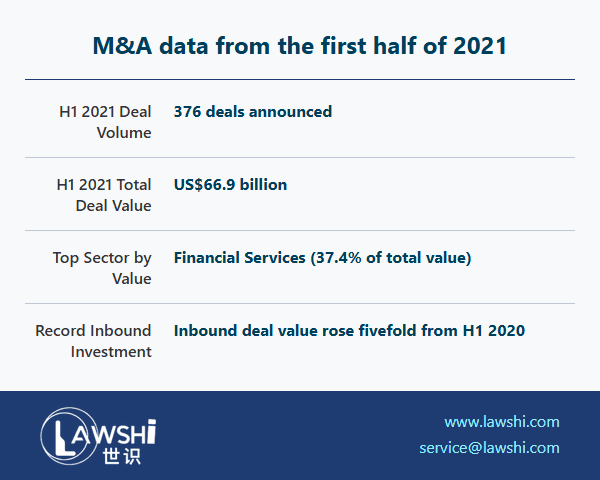Latin America has emerged as a significant destination for global investment, with its economies demonstrating sustained growth and increasing integration into worldwide markets. While the region presents compelling opportunities for strategic acquisitions, sophisticated investors recognize that successful transactions require meticulous planning and comprehensive risk assessment. The perception of elevated risk in Latin American deals can be effectively mitigated through systematic due diligence and thoughtful transaction structuring.
Comprehensive Due Diligence as a Foundation for Success
The due diligence process represents a critical component of any acquisition strategy in Latin America, serving as the primary mechanism for identifying and quantifying potential risks. A properly executed due diligence investigation encompasses multiple dimensions, each requiring specialized expertise and regional knowledge.

Accounting due diligence conducted by experienced audit professionals should extend beyond financial statement verification to include thorough examination of operational practices and routines. This deeper analysis helps uncover potential hidden liabilities that may not be immediately apparent from surface-level financial review. Legal due diligence must address the complex regulatory landscape, examining contractual obligations, pending litigation across civil, tax, and labor domains, and compliance with local corporate governance requirements.
【Lawshi Professional Insight】
Environmental due diligence deserves particular attention in Latin America, where regulatory frameworks are evolving rapidly and enforcement has become increasingly stringent. Beyond assessing contamination risks, investors should evaluate compliance with emerging sustainability reporting requirements and potential liabilities associated with historical operations. The region's diverse ecosystems and varying environmental standards necessitate country-specific expertise.
Understanding the local market context extends beyond the target company itself. Acquirers should develop comprehensive knowledge of competitive dynamics, regulatory trends, and potential partnership opportunities. This broader contextual analysis helps position the acquired entity for successful integration and future growth within its specific market environment.
Navigating Regulatory Diversity Across Jurisdictions
Latin America presents a mosaic of regulatory environments, each with distinct characteristics and challenges. While countries like Brazil, Mexico, and Colombia have established frameworks generally conducive to dealmaking, other jurisdictions present more complex regulatory landscapes. Chile continues to receive recognition for its transparent and predictable regulatory environment, though recent legislative developments across the region warrant careful monitoring.
【Lawshi Practical Tip】
Regulatory changes in Latin America can occur with limited advance notice, particularly in sectors considered strategic by local governments. We recommend establishing ongoing monitoring mechanisms for legal developments in target countries, including tracking proposed legislation that might affect industry-specific regulations, foreign investment rules, or tax treatment of cross-border transactions.
Strategic Management of Disclosure Schedules
The preparation and negotiation of disclosure schedules represent a critical juncture in transaction risk allocation. These documents serve dual purposes: providing exceptions to representations and warranties while simultaneously offering detailed information about specific aspects of the target business. The tension between buyer and seller perspectives on disclosure scope requires careful management to achieve balanced outcomes.
For sellers, particularly in family-owned enterprises common throughout Latin America, the disclosure process may present operational challenges. Gathering comprehensive information requires coordinated effort across the organization, often revealing gaps in documentation or record-keeping practices. Seller's counsel typically advocates for broad disclosure to minimize post-closing liability, while buyers seek specific, narrowly-tailored disclosures that provide clarity without creating ambiguity.
【Lawshi Exclusive Service】
Our firm provides specialized vendor due diligence services designed to identify and address potential issues before the transaction process begins. We help clients implement internal assessment processes that streamline disclosure preparation and strengthen negotiation positions. For buyers, we offer rigorous review of disclosure schedules, correlating findings with due diligence results to identify inconsistencies or omissions.
The strategic importance of disclosure schedules extends beyond risk allocation to potentially affect deal certainty, particularly when agreements permit schedule updates between signing and closing. The "bring down" effect on representations and warranties can significantly alter party liabilities and influence decisions regarding transaction completion.
Leveraging Technology in Due Diligence Execution
Virtual data room platforms have become standard infrastructure for M&A transactions throughout Latin America, enabling efficient document review while maintaining security and confidentiality. These platforms facilitate remote collaboration among globally dispersed team members while providing sellers with detailed visibility into buyer engagement with disclosed materials.
The evolution of due diligence technology has particularly benefited cross-border transactions, reducing the need for physical document review while improving tracking capabilities and response efficiency. The Q&A functionalities embedded in modern platforms create auditable trails of information exchange, reducing misunderstandings and providing valuable reference points during later transaction phases.
Focus Areas for Rigorous Due Diligence
While due diligence findings vary across transactions, several areas consistently yield significant issues upon detailed examination. Tax compliance requires particular attention, given the complex and frequently changing tax regimes across Latin American jurisdictions. Labor and employee benefit arrangements often present unexpected liabilities, especially regarding termination entitlements, social security contributions, and collective bargaining obligations.
Competition regulation has gained prominence throughout the region, with several countries strengthening their antitrust enforcement frameworks. Anti-bribery and corruption compliance demands thorough verification, particularly for companies operating in sectors historically associated with corruption risks. Environmental liabilities can substantially impact transaction economics, especially in extractive industries or manufacturing operations with historical contamination issues.
Proactive Risk Management Strategies
Sophisticated sellers increasingly invest in vendor due diligence processes to identify and address operational weaknesses before engaging with potential buyers. This proactive approach allows for remediation of identified issues and positions the company more favorably during negotiations. Similarly, conducting due diligence on potential buyers helps assess creditworthiness, regulatory approval risks, and compliance with anti-bribery and anti-money laundering requirements.
The ongoing legislative reforms across Latin America continue to align regional frameworks with international standards, reducing certain historical risks while introducing new compliance requirements. Despite these improvements, thorough due diligence remains the most reliable mechanism for protecting investor interests and ensuring successful transaction outcomes in this dynamic and promising region.
